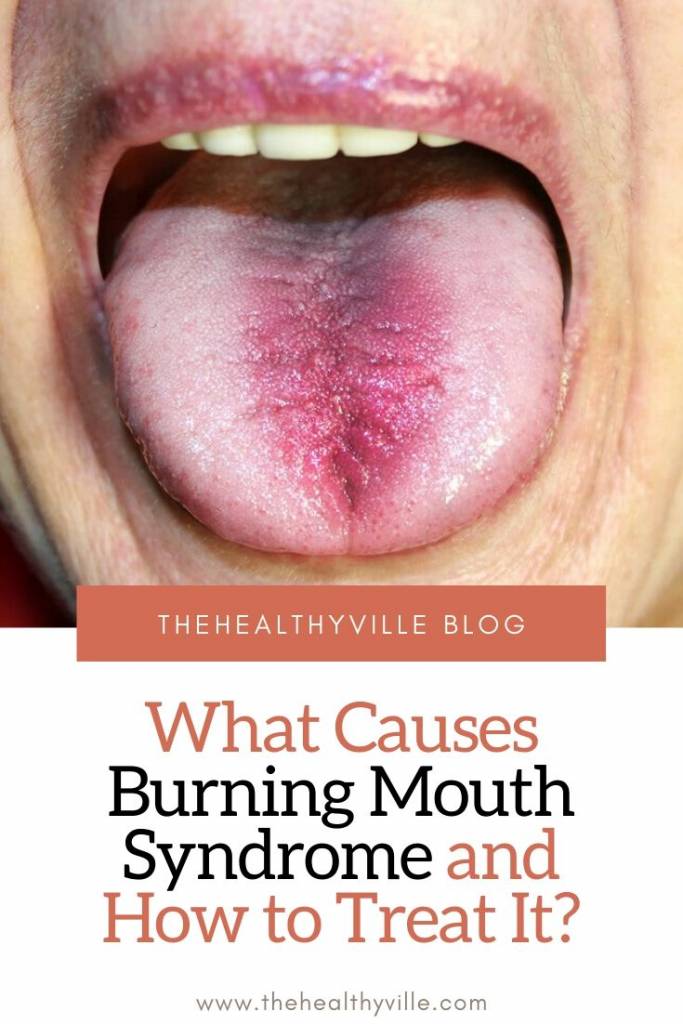Do you know what causes burning mouth syndrome, how to recognize it and how to treat it? If not, you better get familiar with it and solve this problem now!
Burning mouth syndrome is a disease that causes a burning sensation in the oral mucosa, dryness and taste disturbances. How to recognize it? What is your treatment? Here we detail it.
Burning mouth syndrome or glossodynia, is a pathology due to xerostomia in 50 years old women and older.
Saliva is a fundamental element to maintain oral health, since it is the natural lubricant of oral tissues. It is also essential for digestion, as it forms the bolus. Finally, it prevents the proliferation of conditions such as caries or periodontal diseases.
What is xerostomia?
Xerostomia is the decrease in salivary flow in a state of rest. It is more prevalent from the age of fifty, especially in women due to hormonal changes.
It can be a passing pathology, in association for example with a state of anxiety, infection, among other factors. Also, it can be permanent, in relation to the consumption of alcohol, tobacco, chemotherapy, etc.
What is and what causes burning mouth syndrome?
Patients with burning mouth syndrome usually experience a decrease in salivary flow. They also suffer burning in the mouth and tongue, constant thirst and more accumulation of dental plaque.
As we have said before, it is a pathology due to xerostomia, especially in women from the age of fifty. Normally, in association with hormonal changes, such as menopause. It is three times more frequent in women than in men.
Patients also present in this dysgeusia syndrome, which is the difficulty of swallowing. Hyposalivation is in relation to gingivitis, tooth decay or halitosis. Saliva usually becomes thicker and denser. The mucosa is dry, irritated and red. Often, the patient has symptoms such as:
- Burning in the mouth and tongue
- Cracked lips
- Dry mouth
- Presence of ulcers
- Be constant
- Increase in the accumulation of dental plaque
The discomfort usually increases during the evening. Patients also remit metallic or bitter taste. In addition, the appearance of caries is very common in the area of the neck of the teeth, in their roots, due to the decrease in natural autocolysis produced by saliva.
How can we treat it?
If the cause is peripheral, that is, associated with drugs or other pathologies, the syndrome will disappear when these causes disappear. In case the syndrome is not motivated by any other cause, the treatment will be directed towards an increase in saliva, avoiding the side effects of hyposalivation.
They usually give dietary and sanitary advice to induce a greater production of saliva. Frequently, salivary stimulants combined with salivary substitutes are used to increase salivation. Usually they are in spray, dentrific, mouthwash format.
What can we do to avoid it?
Consume plenty of water
Water consumption, as well as managing stress and improving eating, can help prevent burning mouth syndrome. In addition, it is essential to suppress cigarette consumption.
In order to avoid this pathology or remedy its symptoms naturally, we can take into account the following recommendations:
- Try to lead a more relaxed life, reducing stress.
- Increase the consumption of liquids in the diet, making sure to drink about two liters of water a day.
- Try different soft toothpastes, without a very strong menthol taste.
- Avoid drinking acidic liquids and foods, carbonated drinks or coffee.
- Avoid cinnamon.
- Decrease or eliminate alcoholic beverages from the diet, as well as alcoholic products.
- Suppress spicy diet.
- Suppress smoking or reduce it as much as possible.
In summary
Professionals should be consulted whenever they begin to feel changes in the amount of salivation, irritations in the mucosa or any other symptomatology that lasts over time.
This not only to treat it, but to rule out other possible pathologies such as diabetes mellitus or some type of tumor. The doctor or dentist will be able to identify the different possible origins of the pathology to proceed to its control.
Don’t forget to SHARE what causes burning mouth syndrome with your friends and family on your social networks!

